Author Archives: Yona Zeldis McDonough
February 6, 2019 by Yona Zeldis McDonough
The German Girl Who Was Executed for Resisting the Nazis
German teenager Sophie Scholl went from student to resistance martyr after the Nazis took over her country. As member of the White Rose resistance group, Sophie and two other students distributed anti-Nazi pamphlets. They were arrested, and less than a year later, all three were condemned to beheading by guillotine.
Scholl is the subject of a new historical novel, told in verse— White Rose, by Kip Wilson. Fiction Editor Yona Zeldis McDonough spoke with Wilson about her quest to find out what made the exceptional young woman tick and fictionalize her life.
- No Comments
January 29, 2019 by Yona Zeldis McDonough
Hedy Lamarr: The Only Woman in the Room
Most people know Hedy Lamarr as an uncommonly beautiful actress with a vaguely European background and a lot of ex-husbands scattered in her wake. More recently, we’ve begun to learn about her keen interest in science and the impressive invention she masterminded in an effort to help her adopted country defeat the Nazis.
Fiction Editor Yona Zeldis McDonough talks to author Marie Benedict about how and why she decided to research and fictionalize the other life of this alluring Hollywood star.
YZM: What drew you to the subject of Hedy Lamarr?
MB: Since childhood, I’ve been intrigued by the hidden voices in history, particularly the otherwise invisible narratives of women. Over time, I feel as if I’ve developed an antennae of sorts for the unknown stories of historical women. So when an anthropologist friend of mine mentioned to me that there was a famous Golden Age of Hollywood star who was also an incredible inventor, I added her name to the list of women about whom I might write. Bit by bit, I accumulated information about her while writing other women’s stories, and when I learned that aspects of her “secret communication system” — which she hoped would help the Allies in the war effort — led to the creation of wi-fi, I knew Hedy Lamarr’s story needed to be told, particularly since her background and the reason behind her invention are so important.
- No Comments
January 9, 2019 by Yona Zeldis McDonough
New York’s Forgotten Subway Beauty Pageant
Beginning in 1941, a local New York City beauty pageant known as “Miss Subways” posted placards of winners, chosen each month, in the city’s subway cars.
When the pageant ended in 1976, so did a bit of NYC history. But author Susie Schnall has resurrected those bygone years in her lively and delightful novel, The Subway Girls, which alternates back and forth between plotlines set today and the 1940s in New York, exploring female ambition and the limitations placed on it.
Schnall talks to Fiction Editor Yona Zeldis McDonough about the dreams and drives that animated the young women of the pageant, and how the contest shaped their lives in unexpected ways.
- No Comments
November 30, 2018 by Yona Zeldis McDonough
From a Doomsday Church to Judaism
 Angela Himsel grew up as one of eleven children in an evangelical family that lived in rural Indiana. The Worldwide Church of God informed her thinking and fulfilled her spiritual needs. Yet she eventually went to Israel, married a Jewish man and is now a practicing Jewish woman. She talks to Lilith Fiction Editor Yona Zeldis McDonough about her unusual journey.
Angela Himsel grew up as one of eleven children in an evangelical family that lived in rural Indiana. The Worldwide Church of God informed her thinking and fulfilled her spiritual needs. Yet she eventually went to Israel, married a Jewish man and is now a practicing Jewish woman. She talks to Lilith Fiction Editor Yona Zeldis McDonough about her unusual journey.
YZM: Did you know many Jewish people when you were growing up?
AH: There was one Jewish family in my town. I was acquainted with them and knew they were Jewish but didn’t fully understand what it was to “be Jewish.” They could have been Albanian. Being Jewish didn’t imply anything to me, neither positive nor negative.
- No Comments
November 19, 2018 by Yona Zeldis McDonough
The Modest Fashionista Who Became Cutting Edge
As a fashion maven, I’ve noticed that in New York, many Orthodox Jewish women favor modest, well-made clothing that just falls short of—or maybe intentionally steps aside from—chic or cutting edge.
Enter Batsheva Hay, nee Rosenberg, a self-styled fashionista who cultivated her penchant for mixing vintage with contemporary pieces to create her own unique look. Recent profiles in the New Yorker and the New York Times reveal a fascinating story: When she was in her twenties, and working as a lawyer in New York City, she met a photographer named Alexi Hay, a well known fashion photographer. Hay had recently become an Orthodox Jew, and he nurtured a growing interest in Orthodox clothing. Batsheva shared his interest and he even began photographing her wearing the covered up styles favored by the frum.
- 1 Comment
November 15, 2018 by Yona Zeldis McDonough
Female Friendship and Competition in a Novel of the 90s
Lilith’s Fiction Editor Yona Zeldis McDonough talks with author Catherine Hiller about her sharp, smartly observed period novel that deals with female friendship, office edition.
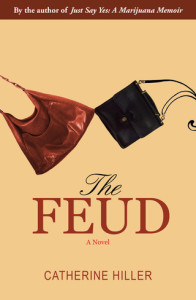 YZM: Why did you choose to set the novel in the 1990s?
YZM: Why did you choose to set the novel in the 1990s?
CH: It was a pivotal time in American life, when email, digital cameras, and cell phones were coming into common use. I wanted to dramatize the impact of these digital technologies. For instance, the book opens with Nikki opening her email at work (she doesn’t have email at home) and seeing a message and an attachment from an unfamiliar address. She idly opens the attachment to find it is a photograph of herself and two men, naked. She’d been drugged and raped on a business trip but hadn’t known she’d been photographed.
- No Comments
October 15, 2018 by Yona Zeldis McDonough
The Depth of Grandparents’ Love
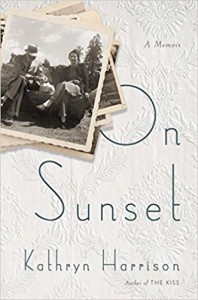 Lilith’s Fiction Editor Yona Zeldis McDonough spoke to memoirist and novelist Kathryn Harrison about her latest foray into family history, On Sunset.
Lilith’s Fiction Editor Yona Zeldis McDonough spoke to memoirist and novelist Kathryn Harrison about her latest foray into family history, On Sunset.
“Blending family history and mythology, anecdotes and photographs, this book is not simply one woman’s open love letter to two magnificently eccentric grandparents; it is also a testament to the enduring power of memory,” writes Kirkus.
YZM: You have written extensively—and well as memorably and beautifully—about your family, including your grandparents, in other essays. Why did you decide to focus exclusively on them now?
KH: I don’t so much decide to write a book as arrive at it. In the case of On Sunset, it’s only now, in my late fifties, with three adult children, that I am beginning to understand what it means to take on the care of a child—a newborn—at 71 and 62—the magnitude of my grandparents’ love. I never felt myself a burden shouldered for my irresponsible teenage mother.
- No Comments
October 11, 2018 by Yona Zeldis McDonough
Nazi-Occupied Normandy and a Family’s Wartime Secrets
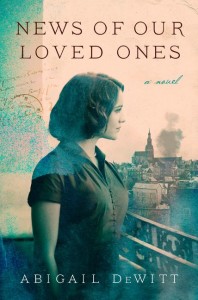 Fiction Editor Yona Zeldis McDonough talks to Abigail Dewitt about her lyrical and haunting novel, which tells the multi-generational story of a French family and the way the Nazi occupation—and the Allied invasion—have shaped their lives.
Fiction Editor Yona Zeldis McDonough talks to Abigail Dewitt about her lyrical and haunting novel, which tells the multi-generational story of a French family and the way the Nazi occupation—and the Allied invasion—have shaped their lives.
YZM: You write so beautifully and intimately about France—what is your connection to the country?
AD: Thank you! I’m a dual citizen of France and the U.S. My mother was a young, French, theoretical physicist when she came to the States in the late 1940s to study at the Princeton Institute for Advanced Study. She’d lost half her family in the D-day bombings and intended to go home after two years to re-join her three surviving siblings, but instead, she met my father and married him. Still, she was deeply committed to helping r-build France after the war, so, to make up for marrying an American, she founded the École de Physique des Houches in the French Alps. She and my father taught at the University of North Carolina, but we spent every summer in France so she could run the institute and we could know our relatives.
- No Comments
September 26, 2018 by Yona Zeldis McDonough
The Mysterious Doctor Who Put Preemies on Display — and Saved Their Lives
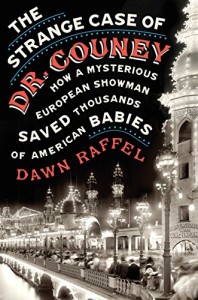 “What kind of doctor puts his patients on display?”
“What kind of doctor puts his patients on display?”
Fiction Editor Yona Zeldis McDonough recently spoke to novelist Dawn Raffel about her new work of nonfiction, “The Strange Case of Dr. Couney: How a Mysterious European Showman Saved Thousands of American Babies” which tells the real story of a doctor who revolutionized neonatal care, “a marvelously eccentric man, his mysterious carnival career, his larger-than-life personality, and his unprecedented success as the savior of the fragile wonders that are tiny, tiny babies.”
- No Comments
August 21, 2018 by Yona Zeldis McDonough
A Female Friendship From the Catskills to the Wider World
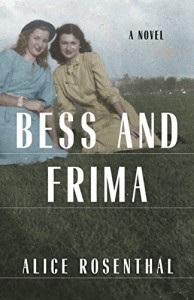 When Bess and Frima―both 19, best friends, and from the same Jewish background in the Bronx―get summer jobs in upstate hotels near Monticello, NY, in June 1940, they each have dreams of love, but love means something different to each of them. Frima seeks safety and finds it with Bess’s brother Jack. Rebellious Bess renames herself Beth and plunges into a new life with Vinny, an Italian American, former Catholic, left-wing labor leader from San Francisco. Her actions are totally unacceptable to her parents―which is fine with Beth, who is eager to reinvent herself outside the tight and suffocating bonds of family.
When Bess and Frima―both 19, best friends, and from the same Jewish background in the Bronx―get summer jobs in upstate hotels near Monticello, NY, in June 1940, they each have dreams of love, but love means something different to each of them. Frima seeks safety and finds it with Bess’s brother Jack. Rebellious Bess renames herself Beth and plunges into a new life with Vinny, an Italian American, former Catholic, left-wing labor leader from San Francisco. Her actions are totally unacceptable to her parents―which is fine with Beth, who is eager to reinvent herself outside the tight and suffocating bonds of family.
As Alice Rosenthal’s novel of friendship, Bess and Frima, unfolds, the menace of world war is growing, and Beth and Frima must grow up fast. Balancing love, ambition, religion, family, and politics, each young woman faces challenges she never imagined in her girlhood. Fiction Editor Yona Zeldis McDonough talks to author Alice Rosenthal about the personal history she mined to write this tender story.
- No Comments
 Please wait...
Please wait...